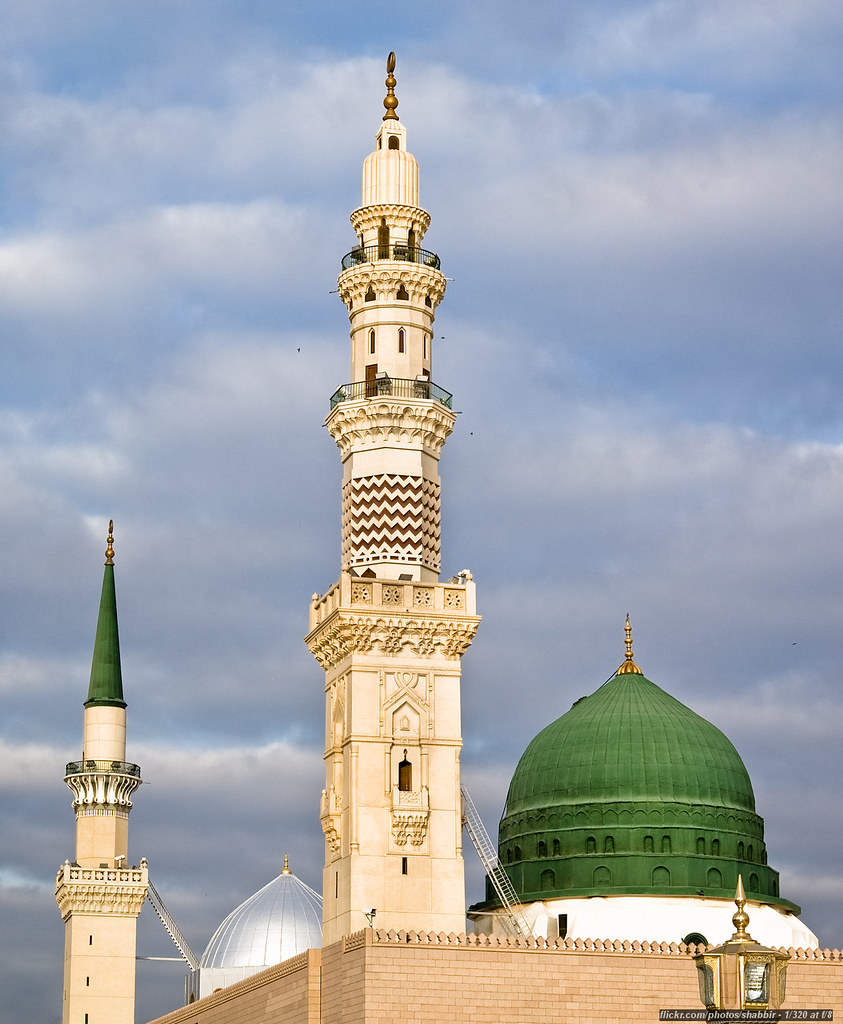Were we to analyse the eras when Muslims throughout the world were dominant, then we will find that they had the haqeeqat (reality) of Islam in their lives; they were living Islam – happily, willingly and enthusiastically. They understood their purpose in this world. They understood that they had higher and nobler objectives to aspire for, because they looked beyond this life.
Before them was their return to their Creator, to Allah Ta’ala; before them was Aakhirah (the Hereafter); before them was Jannah … and so they exerted themselves in the direction of obedience to Allah Ta’ala and securing His Pleasure.
Allah Ta’ala put into the hearts of people, love for these sincere and obedient servants and granted them success. There was a dynamic effect when people met with these Muslims because they not only had the ‘soorat’ (outer form), they had the Haqeeqat as well. People changed their religion, their culture, their dress and their language because they were seeing the beauty and blessing of Islam.
In the early days of Islam, we see how a small number grew to 500, then 700 and thereafter 1500 - which was something of a great and wonderful accomplishment, considering the odds against the Muslims at that time…
Today, we are plus one billion – but what a difference between the early Muslims and us!
In the 1950s, as a young boy, I recall visiting the museum. There were different animals – wild animals, omnivores, carnivores and so forth… but they were all stuffed with sawdust. And there were signs near the animals, which read : ‘PLEASE DO NOT TOUCH.’
Now would we find such a sign in the Kruger National Park when we go on a safari, wanting to see the Big Five…?
When does the king of the jungle require a sign such as : Please do not touch?
Yet, in the museum, this sign was placed next to the lion because there was no life in that lion. There was no haqeeqat (reality). Even if it was the king of the jungle – he was now stuffed with sawdust. Rats too could nibble without fear because there was no life, there was no worry of even a roar.
Looking at the present scenario of the Muslim Ummah – globally, and we see our likeness to those stuffed creatures. …We have lost that power and supremacy which is otherwise reserved for the Believers.
The majority of Muslims today have no reality. …We have ‘stuffed’ our hearts with the love of dunya and therefore our great weakness and overwhelming incapacity – a prophecy which is so clearly manifest today.
Rasulullah (Sallallaahu ‘alayhi waSallam) said: "The People will soon summon one another to attack you as people, when eating, invite others to share their food."
Someone asked, "Will that be because of our small numbers at that time?"
He replied, "No, you will be numerous at that time: but you will be froth and scum like that carried down by a torrent (of water), and Allah will take the fear of you from the breasts (hearts) of your enemy and cast al-wahn into your hearts."
Someone asked, "O Messenger of Allah, what is al-wahn?" He replied, "Love of the world and dislike of death."
[Abu Dawud and Ahmad]
One billion in number, but how shameful, humiliating and dishonourable that we are subservient to the minority. …Who is influencing the political and economic climate? Who is manipulating global dynamics? … Certainly not the Muslims.
The early Muslims had the reality and spirit of Islam. As such, success and victory was theirs for the taking. On the other hand, we want to conquer the world with soorat (form) or with talks and literature.
Dominance, Supremacy, Power and Authority do not come with soorat. In fact, the majority cannot even be recognized as Muslims – so even soorat seems to fall by the way side.
In one of my trips to Pakistan, I visited someone at his home. There was a bowl of plastic fruit which looked so real – but it was “good for looking”, not good for eating.
Many of us Muslims today are not even good for looking. The plastic fruit was a good imitation - but in our soorat, there is no imitation also… very much like the munafiqeen: neither here nor there.
Success and supremacy come with engendering sincere piety in the heart and living Islam … not selecting what we like and leaving off what our nafs does not incline to.
Allah Ta’ala wants us completely IN Islam.
"O you who Believe! Enter into the Fold of Islam completely. … "
[Surah Baqarah 2: 208]
This is the recipe of success. But we will have to bring together the correct ingredients to make that “flop-proof” success.













